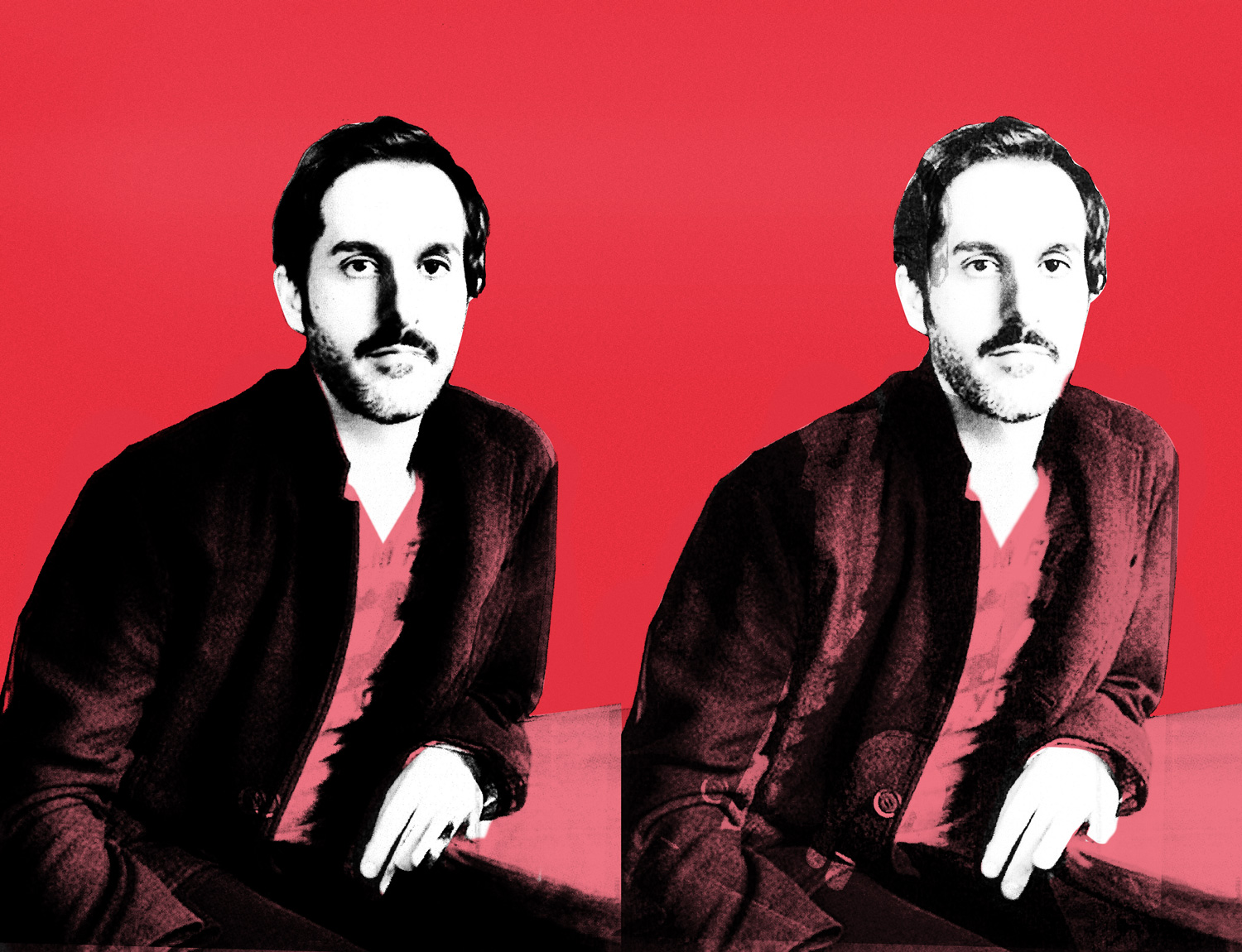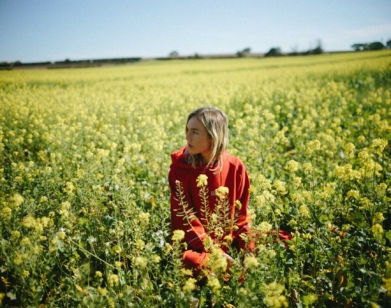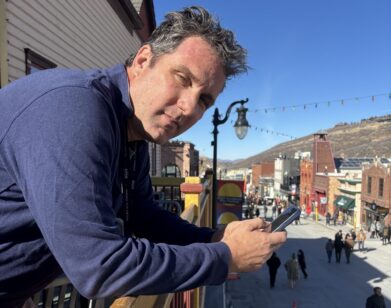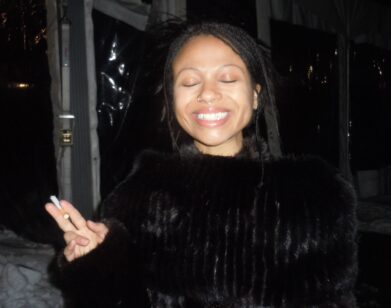And Then We Danced Director Levan Akin on Revolutions and Robyn
Levan Akin never meant to start a revolution. And Then We Danced, his film about a romance between two male dancers at a rigorous Georgian dance company, has nonetheless become a lightening rod for LGBTQ+ rights and representation in Georgian culture. And Then We Danced was shot over the course of four weeks in November 2018, debuted at Cannes in April 2019, and was just screened at Sundance in January. Along the way, he stopped by his native Sweden, where the film picked up four Guldbagge Awards (the Swedish equivalent of the Oscars), including Best Film and Best Lead Actor for newcomer Levan Gelbakhiani. The film’s production was tricky, to say the least: Georgian culture, steeped in tradition, is less than accepting of any queer presence, if not outwardly homophobic. Because of the film’s gay themes, fake plot synopsis were given to secure sets, bodyguards were hired to protect the cast and crew, and the choreographer remains anonymous in the film’s credits to safeguard their identity. The film’s premiere in Georgia, then, was met with polarizing reactions: where critics praised it, conservative protestors rallied outside screenings. “Even though I’m not, I’m going to tell everybody that I’m done because I have to start working on my next film,” he told Interview. “I can’t keep doing this.”
And Then We Danced centers on Merab (Gelbakhiani), an ambitious young dancer striving for recognition at the National Georgian Ensemble. Enter Irakli (Bachi Valishvili), a mysterious new dancer who threatens Merab’s already tenuous position in the troupe, who also effortlessly embodies the masculinity their instructor demands. Merab finds himself inexplicably pulled to Irakli, their shared attraction as terrifying as it is magnetic. Within the rigid patriarchal structure of Georgian culture, queerness is to be rejected, if not completely erased, confining their nascent love affair to prolonged glances and fleeting, late night embraces. And Then We Danced is an exceptionally tender film, a masterful case study in the devouring force of first love and the strength found in self-actualization. Interview caught up with Akin to discuss the difficulties surrounding the film’s production, Georgian modesty, and those ABBA and Robyn cameos.
———
MARK BURGER: What was it like to make a film with such secrecy?
LEVAN AKIN: The whole experience of making this film was really different to me. Working in this way really gave the film its flavor. A lot of the ways the scenes are shot, with the angle of the camera and everything, were done out of necessity. I couldn’t really plan things out properly. We would lose locations on, like, a day’s notice. A lot of the scenes take place in the main dance studio, and we had another location, but two days before we’re going to start shooting, we lost it because they found out where we were doing.
BURGER: You just had to do it.
AKIN: Yeah. And when the scene with the sex workers, they were working that night, we just, like, came on. That was just where they work.
BURGER: And they were just down to film?
AKIN: Yeah. When I was doing research, I’d gotten to know them. I called them and was I like, “I want to do a scene with you guys, are you up for it?” And they were like, “Yeah, let’s do it.” And the guy Merab meets on the bus, he’s also a real person who I had just met out in a bar. All their clothes in the film are their own. The style is like a hybrid of documentary and fiction. I had the frame of the story—the beginning, the middle and the end—but then I would write things on the fly while we were filming.
BURGER: That sounds really difficult.
AKIN: It was, actually. The editing process was very much like editing a documentary. I had very little material in some cases, and I had to be really smart with how I edited the film. The only scenes that we were able to plan out were the scenes toward the end of the film, when Merab is walking in and out of the wedding. I’ve never actually done anything this handheld. If you watch my early films, they’re very planned out. But this film needed this handheld thing because it also gives it this authenticity. Like, when they’re making breakfast for Irakli’s grandmother and they’re all talking, that happened in the moment. Also when he does the Robyn “Honey” dance.
BURGER: Okay, so one of the reasons I was so struck by the movie is because that’s one of my favorite songs of all time. It was, like, my most played song of 2019.
AKIN: Really? And so you didn’t know that it was going to come though.
BURGER: No! And when it came on, I sort of sat up, like, “Wait, what’s going on?”
AKIN: And then to have the ABBA song too. People are surprised when that shows up.
BURGER: Right. You have this Georgian film about traditional Georgian dance in the Georgian language, but then you have these really potent flashes of American or Western popular culture. Why did you decide to include those songs in the film?
AKIN: That was just because they love ABBA and Robyn in Georgia. I can understand how it can feel jarring for a Western audience because they’re like, “Oh, we’re in another world. It’s so far away,” but it’s also so close. Also, when they go out to the techno clubs—that world exists too. For me, it was important to show that. The album Honey had just come out when we were shooting the film, so we were listening to it. And in my script, that scene was just something like “Merab does a dance for Irakli.” We tried different songs, but when we tried that one, it just really fit.
BURGER: I listened to that song the rest of the day.
AKIN: Because it’s an amazing song. But I can’t listen to it anymore. I’ve heard it so many times. It’s so connected to the film. That’s what happens when you make a film about something—you go so deep into it that by the end, you’re tired of it.
BURGER: You mentioned how you found people at bars or on the street, and you found the lead, Levan Gelbakhiani, on Instagram. Why did you decide to blend amateur actors with professional ones?
AKIN: A lot of the young actors had never been in a film, although they’d studied acting in school. The film very much grew out of me finding the lead actor and his capabilities. I worked with him a lot because when I found him, I really liked him and I saw potential with him. I think we did a version of the first scene of the movie just to get money, and the people who saw it really liked it, but they felt that he was guarded—which he was, because he’d never been in a film before. I spent six months with him, just following him around with my little camera, getting to know him. He had no filter to me by the time we started filming. It was like the camera wasn’t there anymore. That was really important for the film to work because he carries the whole thing. I just wanted it to feel really, really authentic, and for those moments of first love to be so real. I’ve never seen those in a gay movie. I’ve seen some of it, but I really wanted to catch those micro moments, because I think a lot of gay people can identify with those situations.
BURGER: How did you connect your initial reaction to the pride event in Tblisi in 2013 to this very rigid, traditional Georgian dancing?
AKIN: It just grew organically. Dancing really shows the traditional patriarchal norms of Georgia in a way that you can instantly explain to a viewer who’s not familiar with Georgia and what it’s all about. It was a practical decision—in the first scene, you get it. Otherwise, you would have to explain in different ways, and I wanted to do it without dialogue. You can explain a lot with movement.
BURGER: Did you ever want to be a dancer like in that tradition?
AKIN: Never a Georgian dancer. I used to dance when I was younger.
BURGER: Really?
AKIN: I danced contemporary dance and ballet, but never to be a dancer dancer. But I thought it was fun. That was when I was 18. I had actually danced here in New York at the Neighborhood Playhouse. So I’ve always loved dance, and I’ve always loved dancing. I admire them because like in the film, the father says, “It’s a dog’s life.” You gave your body—for what? To dance in the background? It’s just so admirable, and they’re so disciplined.
BURGER: Were there any books or music or other films you were thinking about while you were making the film?
AKIN: No. I mean, the music I listened to was a lot of classic Georgian folk music and Robyn, basically. It wasn’t that type of process, because of how I sort of unraveled the film, I wasn’t consciously inspired by anything. But I did watch Y Tu Mamá También with the actors, I remember. I love that movie. I’ve seen it so many times, and I always cry in the end. Obviously, this movie is very different from that one, but I think some of the family dynamics are the same. And I think that’s been in like all my films. My first film was a little inspired by Tennessee Williams, with this whole idea of having been this great, grand family, and now they don’t have anything. And like the grandmother is still living in the past, and how this son has to keep the family going. It’s very Glass Menagerie.
BURGER: The production of the film was very fraught, but then when it was released, it had a pretty polarizing reaction.
AKIN: It was amazing. It was in every news outlet, like all over the world.
BURGER: On one hand, you had the people protesting screenings of the film, and then the other hand, you’re winning all these awards in Sweden.
AKIN: And all over the world, really. And Levan [Gelbakhiani], I think he got more than he bargained for. He’s tired of this.
BURGER: You had to ask him several times to be in it, too, and he kept saying no.
AKIN: Yes, but also, “no” is like a default position in Georgia. Anything you ask: “Do you want coffee?” “No.” You have to ask them, like, five times. When I was doing research and while I was getting to know him, he came to Stockholm for a week and he lived with us. And he said no to everything. I was like, “Do you want food?” He’s like, “No.” I was like, “But have you eaten?” He said, “No, I don’t want food.” And I’m Swedish, so I take things at face value. If someone says no, I’m like, okay, fine. My mom was like, “He’s Georgian. You have to put the food in front of him and ask him five times.” Then I did that, and he started eating. And he was so fucking hungry. He’d been starving! Poor kid. His favorite food is French fries. So if I had had that, maybe he would have said yes quicker.
BURGER: What was it like to have this critical acclaim along with this public outrage?
AKIN: In Georgia, we could only have three days of screenings because the rioters were so crazy. We had to have thirty policemen in every screening room, weapon detectors, and picket police outside. The protesters did a corridor of shame, they call it, so all the cinema viewers had walked through this shit. But they’re a loud mouth minority, because we also have so much support in Georgia. All the media outlets loved the film and supported it. All of those tickets for those three days—6,000 tickets—sold out in minutes.
BURGER: That’s amazing.
AKIN: Grandmothers and grandfathers, so many people went to see the film. A lot of people in Georgia were sort of homophobic by default because they’ve never met any gay people and they just believe what they read. So it’s really leaped the dialogue of this topic ahead, like, 20 years. So much has happened in such a short time in Georgia because of this film. It’s crazy.
I’m very curious by nature, and I get tired of things very quickly. I remember my mom used to tell me when I was a kid that I always used to break my toys apart to see how they worked. And then I would be really sad because I couldn’t play with it anymore. I think that’s the thing with my films too—I find this world, and then I dissect it and find out exactly how it works. So many Georgians who have seen the film are like, “How could you catch Georgia so specifically like no other film has?” Which is a really nice thing to hear because I’m an outsider, and I think it was because of all of the research I did and all the curiosity I had—how the social and family dynamics work, all the details. When I watch the film with Georgians, it’s so fun because they laugh at places that nobody else laughs.
BURGER: Do you feel any kind of pressure now for your next film?
AKIN: That I have to change a country?
BURGER: Right. Which country are you going to try to revolutionize next?
AKIN: I’m not going to change anything, but actually my next film is set in Istanbul. We’ll see what happens with that one.







